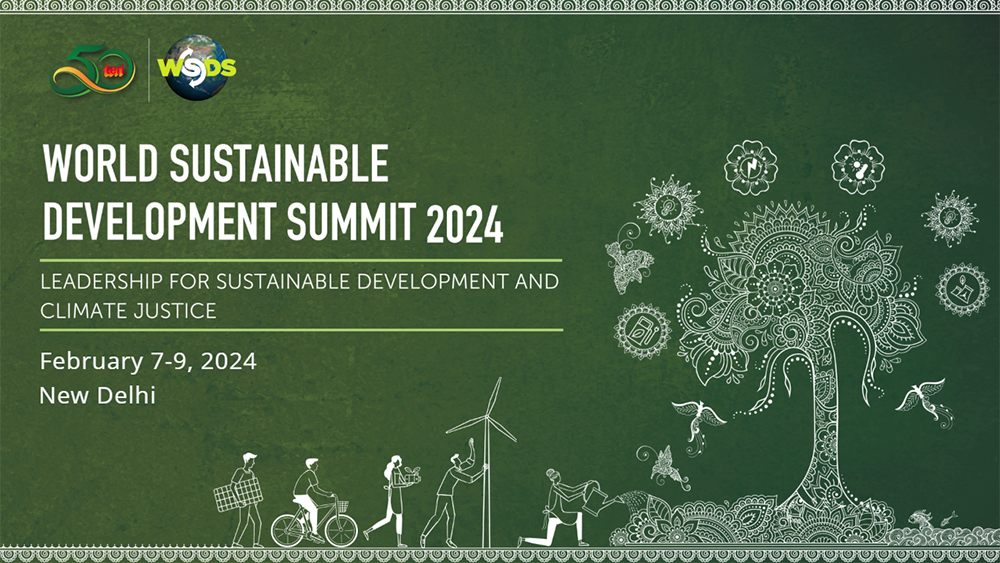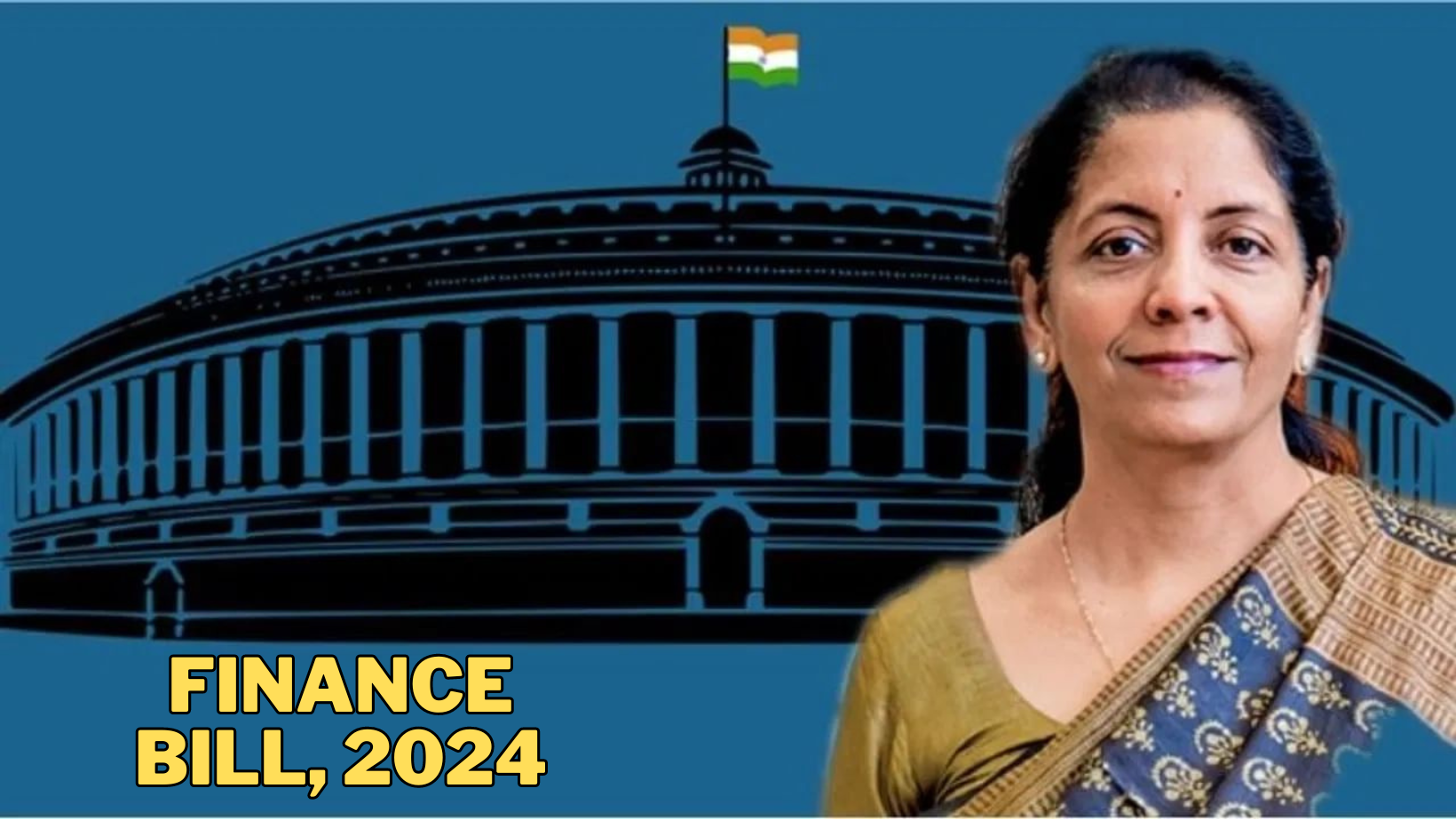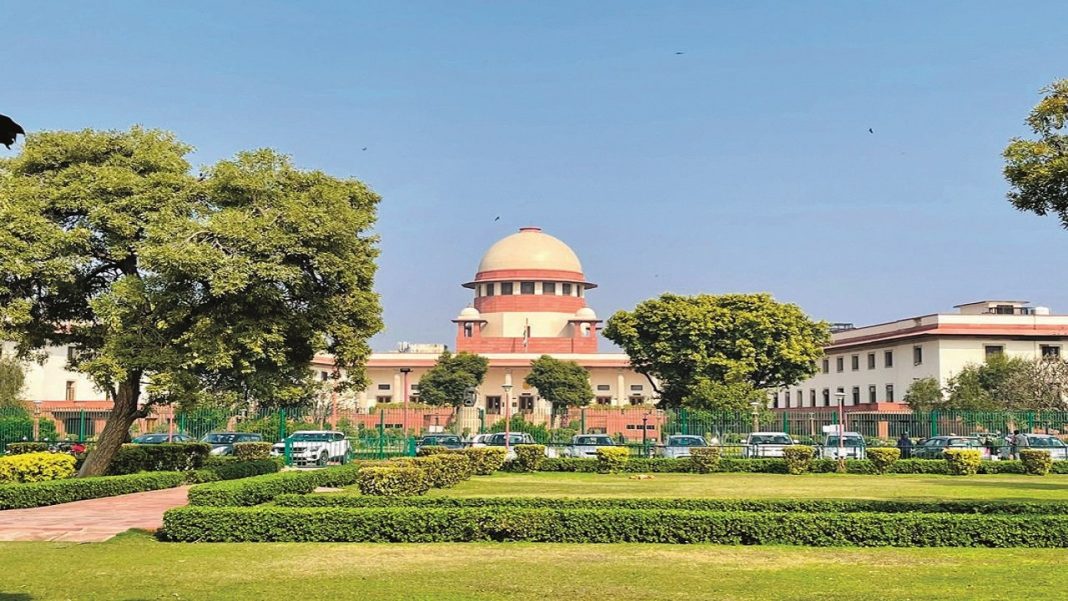Prithvi Vigyan Scheme to Bolster Earth Science Research Approved by Cabinet (Indian Express)

- 08 Feb 2024
Why is it in the News?
The Union Cabinet has approved a Rs 4,797 crore research scheme to boost and maintain research momentum in the fields of ocean, atmospheric and polar sciences.
What is PRITHvi VIgyan (PRITHVI)?:
- The PRITHvi VIgyan (PRITHVI) will be an umbrella scheme spearheaded by the Ministry of Earth Sciences to help continue many of the ongoing research projects covering the period from 2021 to 2026.
- This scheme encompasses five existing sub-schemes:
- Atmosphere & Climate Research-Modelling Observing Systems & Services (ACROSS)
- Ocean Services, Modelling Application, Resources and Technology (O-SMART)
- Polar Science and Cryosphere Research (PACER)
- Seismology and Geosciences (SAGE)
- Research, Education, Training and Outreach (REACHOUT)
- The principal objectives of the comprehensive PRITHVI Scheme are as follows:
- Enhancing and maintaining long-term observations across the atmosphere, hydrosphere, geosphere, cryosphere, and biosphere to monitor critical indicators of the Earth System and its changes.
- Developing modelling systems to comprehend and forecast weather patterns, ocean dynamics, and climate-related hazards, while advancing the understanding of climate change science.
- Exploring the polar and high seas regions to uncover new phenomena and resources.
- Innovating technology for the exploration and sustainable utilization of oceanic resources benefits society at large.
- Translating insights from Earth systems science into services that contribute to societal well-being, environmental preservation, and economic prosperity.
- This scheme is poised to foster the development of integrated, multidisciplinary earth science research and innovative initiatives across various institutes under the MoES umbrella.
Significance of the PRITHVI Scheme:
- Under the PRITHVI Scheme, the Ministry of Earth Sciences (MoES) plays a pivotal role in delivering vital services concerning weather, climate, oceanography, coastal conditions, hydrology, seismology, and natural hazards.
- These services play a crucial role in issuing forecasts, warnings, and alerts for a wide array of natural disasters, including tropical cyclones, floods, tsunamis, and earthquakes.
- By facilitating disaster preparedness and risk mitigation, they contribute significantly to safeguarding lives and property.
- Earth System Sciences encompass a comprehensive study of the interconnected components of the Earth, including the atmosphere, hydrosphere, geosphere, cryosphere, and biosphere, along with their intricate interactions.
- The PRITHVI Scheme is designed to address these components comprehensively, enhancing our understanding of Earth System Sciences and delivering dependable services for the nation's benefit.
- Through integrated research and development endeavours across diverse MoES institutes, the scheme is poised to tackle major challenges in weather forecasting, climate science, oceanography, cryospheric studies, and seismology.
- These efforts aim to explore sustainable methods for harnessing both biological and non-biological resources, ensuring responsible utilization of our planet's resources.
Support to Students for Participating in Competitions Abroad (SSPCA) Initiative (India Today)

- 08 Feb 2024
Why is it in the News?
The All India Council for Technical Education (AICTE) recently introduced a scheme named 'Support to Students for Participating in Competitions Abroad' (SSPCA).
About the Support to Students for Participating in Competitions Abroad (SSPCA) Initiative:
- The SSPCA Initiative, spearheaded by the All India Council for Technical Education (AICTE), aims to enhance the global competitiveness of Indian students in technical education.
- Crafted to provide financial backing to students aspiring to excel in international scientific events, the initiative offers a comprehensive support system.
Financial Assistance and Mentorship:
- Under the SSPCA scheme, individual students or student teams can avail themselves of travel grants to engage in international competitions.
- This assistance encompasses financial aid, mentorship, logistical support, and networking opportunities, empowering students to effectively represent India on the global stage.
- Financial aid extended by the AICTE scheme amounts to up to Rs 2 lakh per student, covering various expenses such as international and domestic travel, registration fees, visa applications, accommodation, airport taxes, travel insurance, and equipment costs associated with the competition.
Eligibility:
- Eligibility for the SSPCA initiative extends to students enrolled in diploma, B.E./B. Tech, integrated M. Tech, and M./M. Tech programs in AICTE-approved institutions.
- Each team of students is entitled to financial support under the scheme once during the course of their study.
About the All India Council for Technical Education (AICTE):
- Established as the statutory body and national-level council for technical education in India, the AICTE has played a pivotal role in shaping the landscape of technical education in the country.
- Founded in 1945 as an advisory body, it gained statutory status through an Act of Parliament in 1987.
Functions:
- The AICTE is responsible for granting approval for the establishment of new technical institutions, the introduction of new courses, and variations in intake capacity.
- It sets and upholds norms and standards for technical institutions to ensure quality development.
- Additionally, the AICTE promotes technical education through various schemes aimed at fostering innovation, faculty development, research and development, and inclusivity for women, the handicapped, and marginalized sections of society.
- Technical institutions under the AICTE's purview encompass a wide array of programs, including post-graduate, undergraduate, and diploma courses across multiple disciplines.
- Headquartered in New Delhi, the AICTE continues to be at the forefront of advancing technical education and innovation in India.
World Sustainable Development Summit 2024 (TERI)

- 08 Feb 2024
Why is it in the News?
Vice-President Jagdeep Dhankhar inaugurated the World Sustainable Development Summit in New Delhi recently in the presence of Prime Minister of Guyana Mark Phillips.
About the World Sustainable Development (WSDS) Summit:
- The WSDS Summit, organized annually by The Energy and Resources Institute (TERI), stands as a flagship event in the realm of sustainable development.
- Instituted in 2001, the Summit series boasts a distinguished legacy spanning over two decades, dedicated to advancing 'sustainable development' as a universally embraced objective.
- Distinguished as the sole independently convened international summit on sustainable development and environment originating from the Global South, the WSDS endeavours to forge enduring solutions for the global community.
- It achieves this by convening the world's foremost leaders and intellectuals on a singular platform.
- The upcoming WSDS 2024 marks the 23rd edition of this significant summit, revolving around the theme 'Leadership for Sustainable Development and Climate Justice'.
Key Facts about The Energy and Resources Institute (TERI):
- TERI stands as a premier think tank committed to conducting research aimed at fostering sustainable development in India and across the Global South.
- Established in 1974 as an information centre focusing on energy issues, TERI expanded its scope to encompass multifaceted research, policy analysis, consultancy, and implementation initiatives.
- TERI's research endeavours, commencing in the late 1980s, are rooted in its steadfast belief that the efficient utilization of energy and sustainable management of natural resources are indispensable for developmental progress.
- Across various sectors, TERI concentrates its efforts on:
- Promoting the efficient utilization of resources
- Enhancing access to and adoption of sustainable practices and inputs
- Mitigating environmental and climate impacts
- TERI's headquarters are located in New Delhi, serving as a hub for its diverse activities and initiatives.
Lok Sabha passes Finance Bill (Indian Express)

- 08 Feb 2024
Why is it in the News?
The Lower House of Parliament recently passed the Finance Bill moved by Union Finance Minister Nirmala Sitharaman.
Context:
- The Lok Sabha passed the Finance Bill, 2024 by voice vote recently.
- Also, the House passed the Appropriation Bill, granting authorization for government expenditures for four months in the upcoming fiscal year.
- The Appropriation Bill is a significant legislative measure that empowers the government to utilize public funds allocated in the annual budget.
- It serves to uphold accountability and transparency by necessitating parliamentary approval for expenditures and prevents unauthorized withdrawals from the Consolidated Fund of India.
- Furthermore, the lower house sanctioned the Rs 1.8 lakh crore budget for the Union Territory of Jammu and Kashmir.
What is a Finance Bill?
- The Finance Bill, classified as a Money Bill under Article 110 of the Constitution, is an annual presentation in the Lok Sabha following the Union Budget announcement.
- It encapsulates the government's fiscal proposals concerning taxation, expenditure, and other financial affairs.
- Through this bill, the government submits its proposals for imposing new taxes, altering the existing tax framework, or extending the current tax structure beyond the approved period to Parliament.
- Accompanied by a Memorandum elucidating its provisions, the Finance Bill is exclusively introduced in the Lok Sabha, though amendments can be recommended by the Rajya Sabha.
- Approval from both houses of Parliament is requisite for the bill to become law, with a mandate for passage within 75 days of its introduction.
- While all Money Bills fall under the category of Financial Bills, not all Financial Bills qualify as Money Bills.
- For instance, a Finance Bill solely focusing on tax proposals is classified as a Money Bill.
- Conversely, a Bill addressing taxation or expenditure alongside other subjects is categorized as a Financial Bill.
- Thus, if a Bill entails government expenditure along with other matters, it is designated as a financial bill.
Highlights of the 2024 Finance Bill:
- Stability in Income Tax: With the impending general elections in April-May 2024, the bill prioritizes continuity by retaining the current tax framework for the fiscal year 2024-2025.
- Targeted Relief Measures: Incorporates slight tax concessions tailored to particular sectors or taxpayer groups.
- Promotion of Economic Expansion: Encompasses provisions aimed at fostering infrastructure enhancement, investment stimulation, and streamlining business operations.
- Fiscal Discipline: Pursues fiscal consolidation objectives through proposed strategies to manage expenditures or enhance revenue generation.
Extending the Retirement Age of Supreme Court and High Court Judges (Indian Express)

- 08 Feb 2024
Why is it in the News?
The government has told a parliamentary panel that extending the retirement age of Supreme Court and High Court judges based on their performance may not be practical.
Key Insights from the Report on Judicial Processes and Reform:
- On August 07, 2023, the Standing Committee on Personnel, Public Grievances, and Law and Justice, chaired by Mr. Sushil Kumar Modi, presented its findings.
- Among its significant findings and recommendations, the Committee emphasized the necessity of raising the retirement age for judges.
- They highlighted the importance of aligning this age with advancements in medical sciences and increased life expectancy.
- At present, Supreme Court (SC) and High Court (HC) judges retire at 65 and 62 years, respectively.
- The Committee proposes amending relevant Articles (124 and 217) of the Constitution to extend these retirement ages.
- The retirement age of the High Court Judges was increased from 60 to 62 years, after the 15th constitutional Amendment according to section 4 of the Constitutional Act 1963.
- Furthermore, the Committee suggests implementing a system of appraisal by the SC Collegium to assess judges' performance and health conditions, as well as the quality and quantity of judgments delivered, before extending their tenure.
Debate Regarding the Retirement Age for Supreme Court (SC) and High Court (HC) Judges:
- Retiring SC judges have frequently reflected on their time in office, often feeling that their tenure didn't allow them sufficient opportunity to make meaningful contributions to the judiciary.
- In 2022, former Chief Justice of India (CJI) N.V. Ramana engaged in a dialogue with Justice Stephen Breyer of the US Supreme Court, who chose to retire at age 83 after serving for 27 years.
- Expressing his views, CJI Ramana, who was scheduled to retire after 8.5 years on the SC bench, remarked that 65 seemed 'too early an age for retirement.'
- Despite this, CJI Ramana's tenure surpassed that of most other SC judges.
- Among the current 32 Judges of the SC, only CJI Chandrachud, and Justices J.B. Pardiwala, K.V. Viswanathan, and Dipankar Datta are expected to exceed the 8-year mark.
- These judges represent a minority who surpass the average tenure of sitting SC judges, which stands at 5.4 years.
Why is the Government Resistant to Elevating the Retirement Age for SC and HC Judges?
- The government asserts that raising the retirement age for Supreme Court (SC) and High Court (HC) judges might lead to potential issues of favouritism.
- They argue that such a move would grant excessive authority to the SC Collegium, potentially diminishing parliamentary oversight in evaluating judges for tenure extensions.
- Additionally, the government expresses concerns that this change could subject judges to external pressures, compromising their ability to maintain impartiality.
- Moreover, they highlight the strain it would place on the already limited human resources within the Judiciary and the Executive involved in the appointment process.
Additional Insights from the Report on Judicial Processes and Reform:
- Establishment of Regional SC Benches: The Committee highlighted the challenge faced by litigants from distant regions due to the centralized nature of the Supreme Court in Delhi.
- They proposed leveraging Article 130 to create regional benches in four or five locations.
- These regional benches would handle appellate matters, while constitutional issues would remain under Delhi's jurisdiction.
- Enhancing Social Diversity in Judicial Appointments: Recognizing a diversity deficit in the higher judiciary, the Committee pointed out the low representation of marginalized communities.
- They noted that since 2018, only a small percentage of High Court judges belonged to Scheduled Castes and Scheduled Tribes.
- To address this, the Committee recommended that the Supreme Court and High Court Collegiums prioritize the nomination of women and candidates from marginalized communities, including minorities.
- Implementation of Mandatory Asset Declaration: While constitutional functionaries and government servants are obligated to declare their assets annually, judges are exempt from this requirement.
- The Committee urged the central government to enact legislation mandating higher judiciary judges to disclose their assets and liabilities each year to the appropriate authority.
- Revision of Vacation Practices in SC and HCs: The Committee observed that simultaneous vacations for the entire court contribute to case backlog and inconvenience for litigants.
- They proposed a staggered vacation system, wherein judges take leave at different times throughout the year, to mitigate this issue.
- Publication of Annual Reports by HCs: Presently, only a few High Courts publish annual reports, unlike the Supreme Court, which regularly issues its report.
- The Committee recommended that the Department of Justice collaborate with the Supreme Court to ensure that all High Courts prepare and publish their annual reports, promoting transparency and accountability in judicial operations.
